“I became a widow at 38 – I’ll carry the grief with me forever”
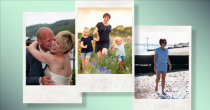
Karen Whybrow lost her husband to cancer a month before his 40th birthday. In a powerful first-person piece for Processing, a Stylist Frame Of Mind series, she reveals how she began to process the grief.
The sun warms my skin through the open patio doors as I feed our youngest daughter. The paramedic, the third to arrive at our house in the past 30 minutes, asks whether I would like him to resuscitate my husband should he go into cardiac arrest.
My whole being is screaming at me: say yes, say yes! The reality is he is dying and it is happening much quicker than either of us are prepared for. “It’s not like it is in the movies and he is in a bad way,” the paramedic explains, as tears fall from my cheeks onto our daughter’s face.
My husband was diagnosed with stage 4 bowel cancer when I was six months pregnant with our youngest child. He was 38 years old.
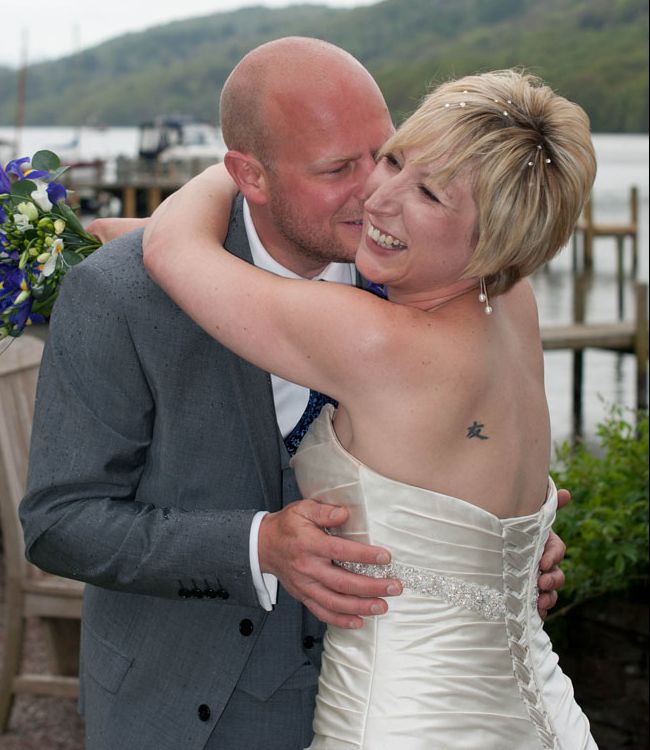
We were forced into a world of fear, scans, chemotherapy, treatment plans, death and hope. Far removed from the gentleness, softness and growth of pregnancy.
The learning curve was huge for us both. My role became the caregiver, advocate and doer of things to help Ben stay alive. His role was to survive.
The treatment was intense, consisting of fortnightly chemotherapy with harsh side effects. We would flit across the hospital from oncology to maternity, all the while trying to remember the right questions to ask of the right consultant. Within three hours of our daughter being born by emergency caesarean and rushed to neonatal care, Ben hot-footed it across the hospital to have his chemotherapy.

The chemotherapy did its job for around nine months, but during an unscheduled treatment break, the cancer began to grow again. Radiotherapy was the next option. It was horrendous in its brutality. I watched the person I loved, the father of my children, disappear before my eyes. He became a shadow of himself in a matter of weeks.
But through it all, his desire to live pushed him on. He only once spoke of dying and his concern wasn’t for himself, but for those he was leaving behind.
There was no opportunity for a bucket list. With treatment, work and two children under four, we instead made a list of things we would do when Ben got better.
He died less than a month before his 40th birthday, making me a widowed mother of two at the age of 38.
There is no preparation for this, nothing that can soften the blow. When you wake and realise your husband is no longer just sleeping, but dead, everything changes.
And I mean everything. Not one single part of your life is left unscathed by the cataclysmic event. It is like a tsunami has hit, its epicentre smack bang in your heart and the waves reverberating through every layer of your being.
Even the places you think should be free from pain (supermarket shopping, walking the dogs, writing a birthday card) are drowned in the resulting deluge. Everything is torn and tarnished.
I lived my life going through the motions; I was doing what I was supposed to do: I got up, the children got up, I got dressed, I got them dressed, I fed them, I washed them, I took them places. I did what was expected of me. I kept busy and did everything I could to avoid facing my heartbreak and the reality that Ben was dead. I was so alone, so scared and so very, very sad.
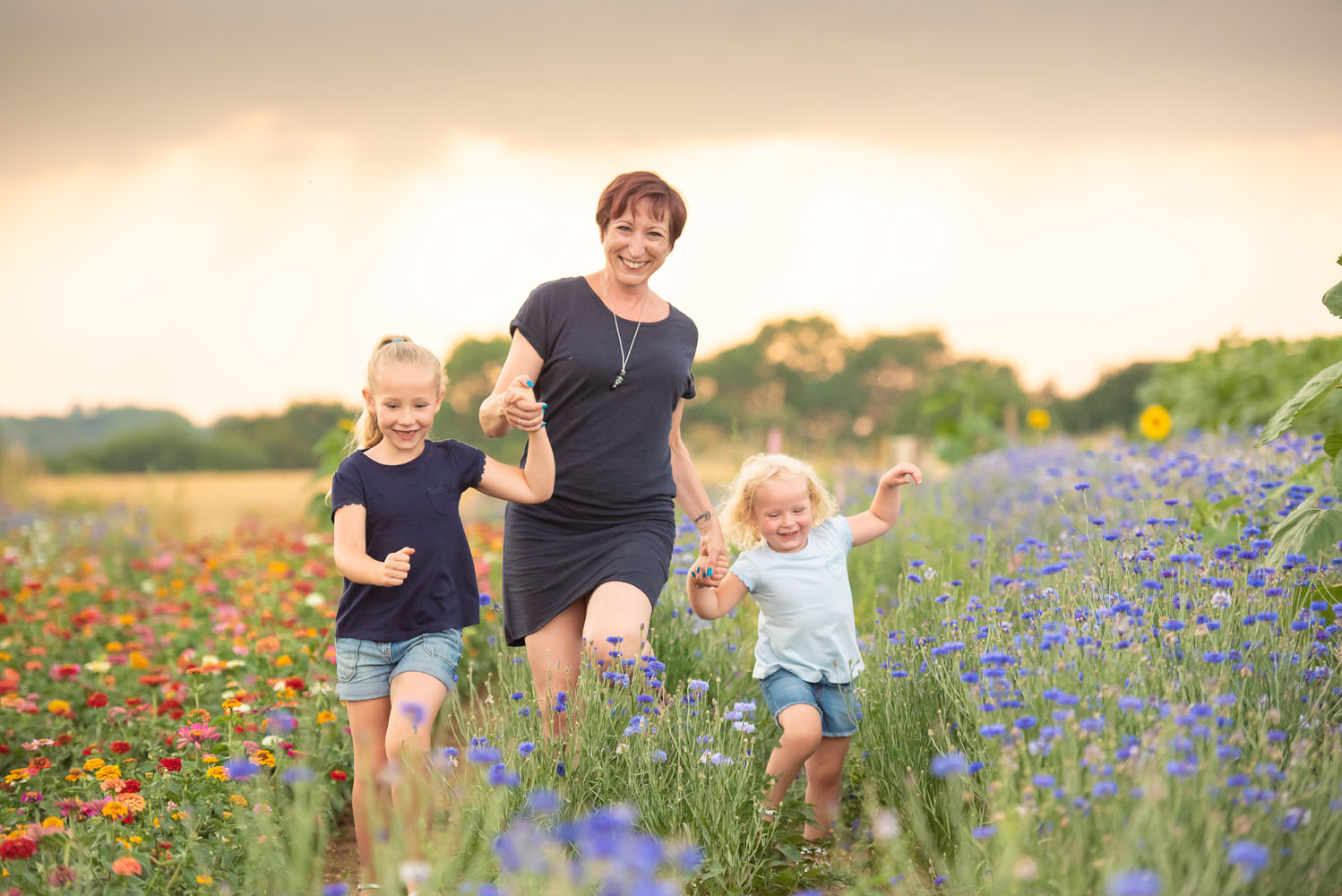
I struggled the most when the girls were in bed. Nighttimes became my nemesis. The evenings would stretch out ahead of me and I was taunted by memories of what I would be doing with Ben if he were still alive. I tried to lose myself in glasses of red wine. Everything becoming uniform – no peaks and troughs, just flat.
I came to realise this half-life of survival was not how Ben would want me to be living. He would want me to be thriving and enabling our girls to do the same. Something had to give and that was me. I had to face my fears, my feelings and rebuild our life.
There was no magic fix, of course. But as time passed and the waves settled, I began to see the shapes of life re-emerging. The laughter of our daughters brought me into the present moment, then a memory would pop up and remind me the pain was still there, still sharp, still raw.
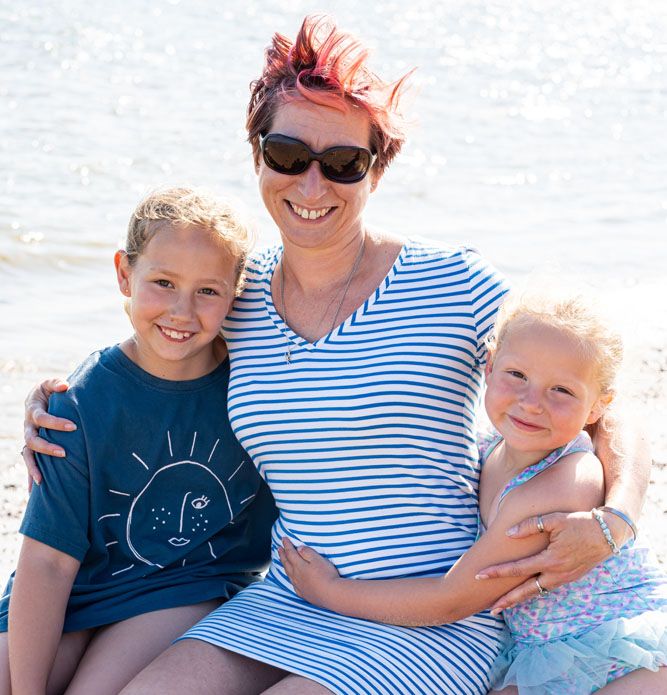
Sometimes, I wished that life was as it had been before. There were wonderful moments when I woke up in the morning and briefly forgot Ben was gone. Something would happen and I’d think, “Ooh, I must tell Ben that when I get home.” I kept picking up his favourite thing in the supermarket then remembering I didn’t like it, so I put it back. I kept looking for his car on the drive.
Each of these moments hurt, bringing back the pain over and over. It’s an experience I wouldn’t wish on my worst enemy.
And in my girls, I see a reflection of Ben – in their faces, their mannerisms. This brings joy and heartbreak in equal measure. It feels so shatteringly unfair that he and they are missing out on the wonders of knowing each other.
You may also like
5 steps to help deal with loss and grief
I began to ask myself one question: when we’re lucky enough to meet and live in partnership with the person we feel completes us, how do we feel whole when they die?
The answer I found was to trust that I have always been whole and enough, and to trust in a connection bigger than myself. For me, this is the universe. For some, it’s God. I have to believe that the universe has my back.
When the worst thing imaginable has happened in life, letting go of any control is huge but the relief and freedom in doing so is amazing. It took me a long time to realise that I cannot control everything and to stop trying to control everything. I had been looking in the wrong place for safety and security all along. I was looking outside of myself when I needed to be my own place of safety and security. Once I started to build this within me I was able to let go of anything that was not serving me easily. I could give things back to the universe to control for me.
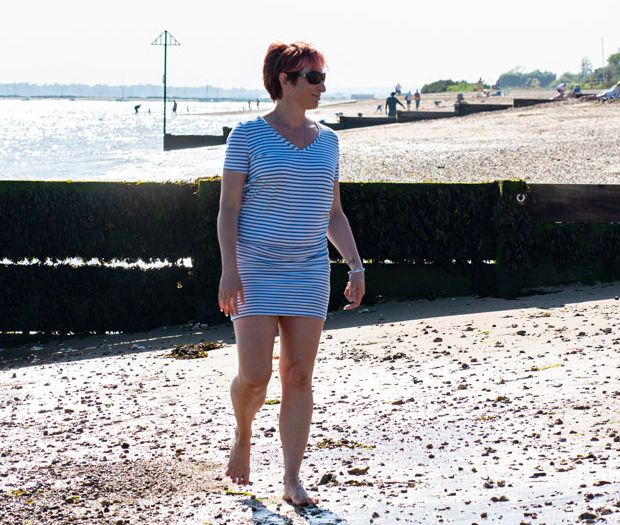
The tide revealed a new me: one that’s kinder, gentler and more forgiving… especially of myself. I am now the me that Ben saw, not the me I saw through the lens of my inner critic. I allow myself to take up space, to be, and to follow what brings me joy. I have grown through grief. There is still a hole in me, but it’s no longer gaping. My heart has grown around the space, holding it close and keeping it safe.
Around corners, I still find moments of guilt and questioning. What could I have done differently? How could I have changed things? Why Ben? Why us? Am I grieving too much? Too little? These questions engulf and overwhelm, but I know that beneath it all I’m still there – bruised, battered and dented around the edges, but present and whole.
I’ve learned that it’s only when we allow ourselves to be present and to truly feel our emotions that we begin to heal.
I carry my grief with me just like I carry my love for Ben with me. I have seen with my own eyes how fleeting life really is, and it gives me the strength and desire to be better. I grieve for what I’m missing, but I’m so grateful for the love and life I had with Ben. I’ve learned that without love there can be no grief, and vice versa. Some days I can accept this; other days the unfairness brings me to tears.
Maybe if we speak more about loss, grief and growth, and actually listen to the stories and experiences of others (and I mean really listen, not just sit thinking ‘thank goodness that’s not my life’ or suggesting ways to fix it), we might learn.
Maybe it’s down to people who’ve lived through death to speak their stories and lead the way.
This is why I became a life coach, specialising in helping other people through their grief. I wanted to make a positive change, for me, for our girls and for Ben, and I began to see that I could use my experience to help others who are struggling. Now, I help people to grow through whatever life throws at them, just as I did, and empower them to thrive, to live life well and to follow the things that light them up.
You may also like
“I found my friend when she attempted suicide. Now I want to help people spot the signs early”
We all have a choice to do things that bring us joy and to see the blessings in our lives.
I find my joy in the sea, wild swimming and walking with my children and dogs along the tranquil beach. This magical space keeps me grounded and reminds me nothing is permanent; everything changes.
I’ve learned that it’s possible to allow yourself to feel the warmth of the sun even as waves of grief still wash through you.
Karen Whybrow is a coach who specialises in grief and finding joy. If you feel you would benefit from her help, email [email protected].
Frame Of Mind is Stylist’s home for all things mental health and the mind. From expert advice on the small changes you can make to improve your wellbeing to first-person essays and features on topics ranging from autism to antidepressants, we’ll be exploring mental health in all its forms. You can check out the series home page to get started.
Images: courtesy of Karen Whybrow; Stylist
Source: Read Full Article